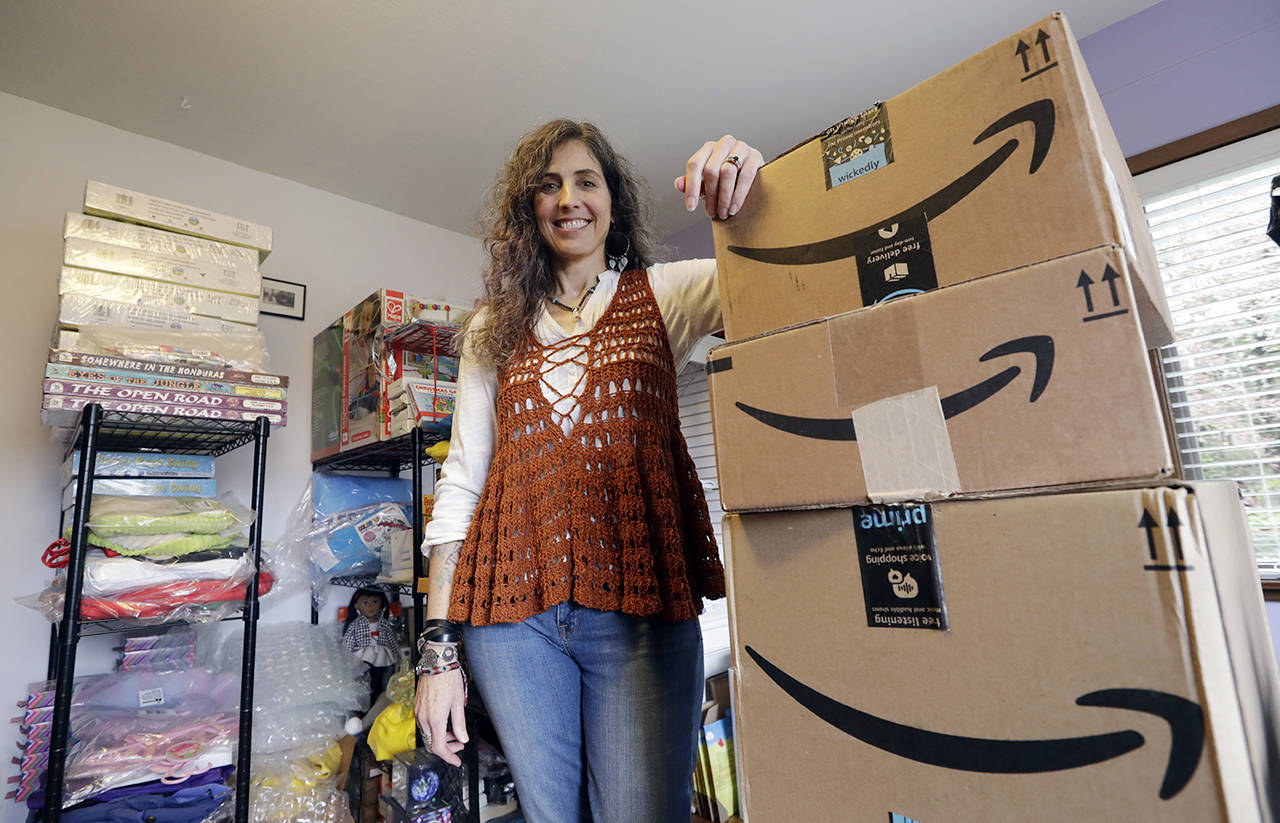By Jessica Gresko / Associated Press
WASHINGTON — Sales Tax: $0.
Online shoppers have gotten used to seeing that line on checkout screens before they click “purchase.” But a case before the Supreme Court could change that.
At issue is a rule stemming from two, decades-old Supreme Court cases: If a business is shipping to a state where it doesn’t have an office, warehouse or other physical presence, it doesn’t have to collect the state’s sales tax.
That means large retailers such as Apple, Macy’s, Target and Walmart, which have brick-and-mortar stores nationwide, generally collect sales tax from customers who buy from them online. But other online sellers, from 1-800 Contacts to home goods site Wayfair, can often sidestep charging the tax.
More than 40 states are asking the Supreme Court to reconsider that rule in a case being argued Tuesday. They say they’re losing out on “billions of dollars in tax revenue each year, requiring cuts to critical government programs” and that their losses compound as online shopping grows. But small businesses that sell online say the complexity and expense of collecting taxes nationwide could drive them out of business.
Large retailers want all businesses to “be playing by the same set of rules,” said Deborah White, the president of the litigation arm of the Retail Industry Leaders Association, which represents more than 70 of America’s largest retailers.
For years, the issue of whether out-of-state sellers should collect sales tax had to do mostly with one company: Amazon.com. The online giant is said to account for more than 40 percent of U.S. online retail sales. But as Amazon has grown, dotting the country with warehouses, it has had to charge sales tax in more and more places.
President Donald Trump has slammed the company, accusing it of paying “little or no taxes” to state and local governments. But since 2017, Amazon has been collecting sales tax in every state that charges it. Third-party sellers that use Amazon to sell products make their own tax collection decisions, however.
The case now before the Supreme Court could affect those third-party Amazon sellers and many other sellers that don’t collect taxes in all states — sellers such as jewelry website Blue Nile, pet products site Chewy.com, clothing retailer L.L. Bean, electronics retailer Newegg and internet retailer Overstock.com. Sellers on eBay and Etsy, which provide platforms for smaller sellers, also don’t collect sales tax nationwide.
States generally require consumers who weren’t charged sales tax on a purchase to pay it themselves, often through self-reporting on their income tax returns. But states have found that only about 1 percent to 2 percent actually pay.
States would capture more of that tax if out-of-state sellers had to collect it, and states say software has made sales tax collection simple.
Out-of-state sellers disagree, calling it costly and extraordinarily complex, with tax rates and rules that vary not only by state but also by city and county. For example, in Illinois, Snickers candy bars are taxed at a higher rate than Twix because foods containing flour don’t count as candy. Sellers say free or inexpensive software isn’t accurate, more sophisticated software is expensive and that collecting tax nationwide would also subject them to potentially costly audits.
“For small businesses on tight margins, these costs are going to be fatal in many cases,” said Andy Pincus, who filed a brief on behalf of eBay and small businesses that use its platform.
The case now before the Supreme Court involves South Dakota, which has no income tax and relies heavily on sales tax for revenue.
South Dakota’s governor has said the state loses out on an estimated $50 million a year in sales tax that doesn’t get collected by out-of-state sellers.
In 2016 the state passed a law requiring those sellers to collect taxes on sales into the state, a law challenging the Supreme Court precedents. The state, conceding it could win only if the Supreme Court reverses course, has lost in lower courts.
Talk to us
> Give us your news tips.
> Send us a letter to the editor.
> More Herald contact information.

























